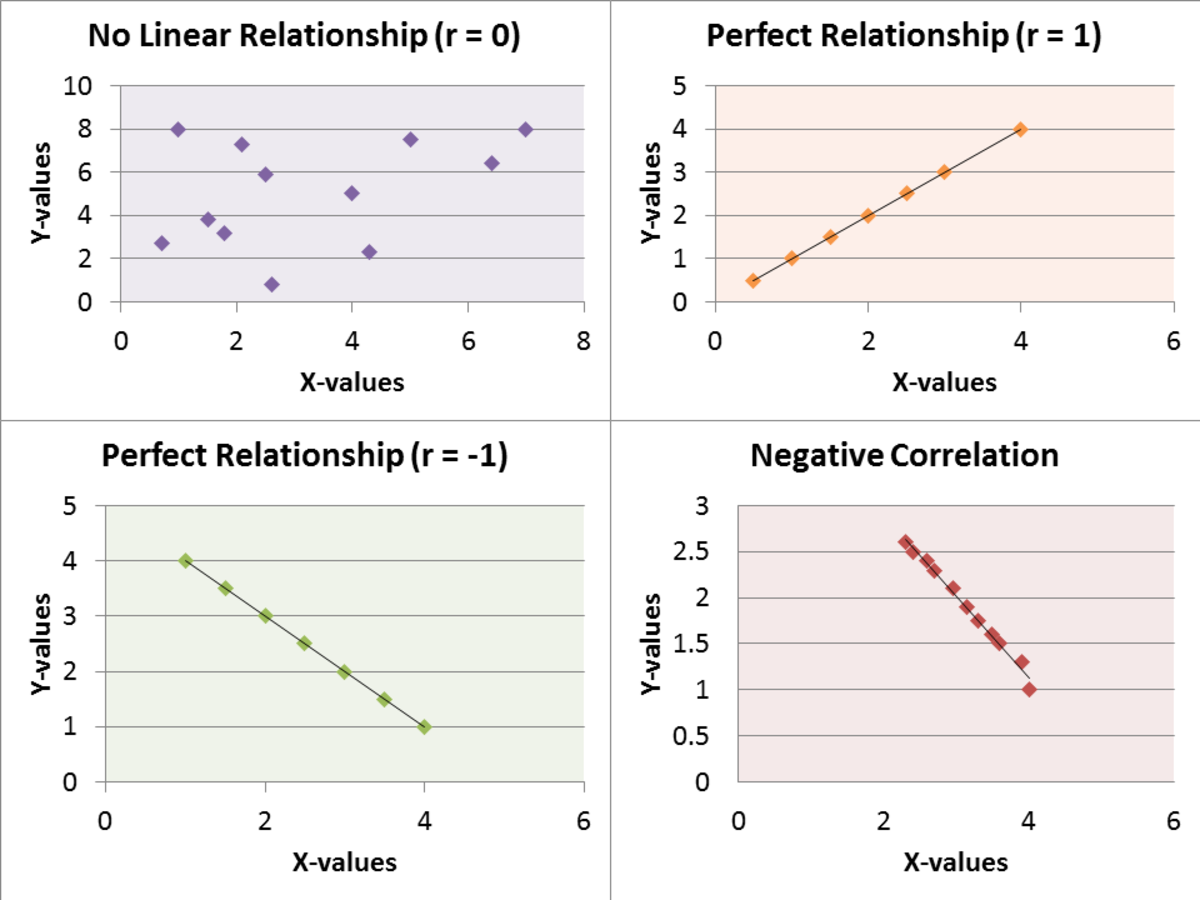Future probability..

The idea of being able to predict the future is very attractive. If we could do it accurately we could be wealthy beyond our dreams, or perhaps we could avoid some tragedy or trouble we are going to run into
Well actually we do try to predict the future every day. The problem is, most of the time we can’t do it accurately. We make educated guesses that sometimes pan out, and sometimes don’t. Some people get very good at predicting certain things. People working in the stock exchange can get very good at predicting trends, for instance.
But the future and how it plays out is chaotic. Therefore, like the weather, it is fundamentally unpredictable the farther forward you want to see. The weather can only be predicted with decreasing accuracy for 5 days ahead. By the second or third day of a forecast the predictions for the rest of the week may already have changed. We’ve all seen it happen.
And yet the weather, the future, and chaos itself is deterministic. The future will unfold in a specific way because: while there are always hundreds of possibilities for a future event, only one actuality will become real, and through cause and effect it won’t have been able to come out any other way.
Does this mean that if we knew every interaction, and every cause, we would be able to know the future with absolute accuracy? Perhaps. But that is the extent of what we have to know. Not just everything about a certain situation. We would have to know everything; absolutely everything, just to predict something like the long range weather.
But that’s the weather. Can we make accurate long range forecasts for other things? People in the 1950s and 60s thought that by now we would all be flying to work in our cars. Lucky that never got started. Can you imagine the problems something like that would bring? The fatalities?
Not that we couldn’t be flying to work by now. But we thought better of it. Perhaps we could have found a way to make it work and perhaps someday we will. But what holds us back as much as the logistics is really the money it would all cost. A car is fine because they are affordable. Roads evolved with the car, and so did the rules for driving. But we already had roads and we were already driving wagons on them. It was a natural evolution. All of us flying our cars to work would be an effort of enormous magnitude, and frankly, there is no real will in the general population to make it a reality. Perhaps someday it will all just fall into place.
(An interesting note is that many early auto makers and enthusiasts were pilots.)
In the 1970s many of us thought nuclear war was inevitable. We were the generation that lived with almost certainty that we would soon be facing a new and stark world where Einstein’s infamous words would echo in the ears of those few survivors of a nuclear holocaust. And I paraphrase: “If the next war is fought with atomic weapons, the one after that will be fought with sticks and stones.”
It didn’t happen. Nowadays it seems that if an atomic weapon is used, it will not set off the madness of mutual annihilation. It turns out that the answer to Sting’s musical question was answered. Yes, the Russians love their children too. Who knew? Yet shouldn’t we have? Perhaps not.
The future we face is full of possibilities. Chances are that no matter what we predict for our future, we will be wrong. Yet it’s impossible not to be tempted to try. We can set goals and work toward them making them a reality. But there are no guarantees that our goal setting will work. Yet not setting achievable goals is almost a guarantee that we will never achieve them. Thinking/wishing alone is useless. We have to combine it with doing if we are to affect change in our lives.
Our inroads in genetics and bionics as well as AI and nanotech are poised to do potentially amazing and terrifying things. It is impossible not to think of the potential future from that perspective, and try to predict what might happen…. If.
This is the stuff of fiction. Fiction and science fiction warns us about the potential problems we will face through an engaging narrative. It is a long tradition dating back to way before the bible. It is part of the way in which the future unfolds and how we on mass through our opinions help to guide it. Because the opinions of the masses get turned into actions almost by magic. Well not magic, but by a chaotic process that no individual is responsible for, and that all of us together are to blame for.
In this way we start debating the possibilities and start deciding what future we are going to work toward. In the 1970s we rallied and worked toward nuclear disarmament and an end to the potential madness. But that didn’t happen. What happened instead was a surprise: the fall of the USSR. It was a positive result, but not the one people were looking for. Yet probably the only result we could have expected: not complete disarmament; (the genie can’t be put back in the bottle) Just a calmer political climate.
So no one can predict the future with any certainty. But we can always see many possible futures. What will happen when we have harnessed genetics? The possibilities are almost endless. We will likely make bacteria that are designed to eat toxic spills and then die. Or destroy cancer cells, or cure all kinds of diseases. We can alter our own genes, designing humans for life on other worlds or in the sea.
Are there risks? You bet. We could wipe ourselves out. Should we continue regardless of that fact? The question is irrelevant because we will continue. The question is, what will we actually do?
The scientists who work with this stuff are not stupid people. Between them and us, (public opinion) we may be alright for the most part. There are safeguards in place already. We don’t always do something just because we can; like have everyone flying to work. But we do whatever we can within the guidelines we set up for ourselves.
Things seem to come in time when all the pieces are in place. In the 1960s Bell Canada told us that we could have phones that would allow us to see the person we were talking to. We were sure that was going to be coming in the near future. But it never caught on. People at that time said they wouldn’t be comfortable with it. There were privacy concerns. After all, you would have to get dressed up to answer the phone. You couldn’t have people seeing you in the nude or in your PJs. It was an amusing idea but the videophone never happened. There wasn’t enough interest for the phone companies to spend all that money on developing the required technology.
But look what happened: when the computer and the internet came into their own, video conferencing developed almost naturally. Now we can video conference on our cell phones from anywhere.
It didn’t happen the way we imagined. We don’t feel the need to get dressed up when we make a call. We don’t consider it an invasion of privacy because we can choose who we want to see, and who we will allow to see us. People in the early 1960s couldn’t have imagined any of it from where we were technologically back then.
Star Trek brought us the idea of the flip top hand held wireless communication device. It developed ideas for technologies that can’t yet exist but which many are actively working toward achieving. It pioneered many of the new technologies we have now. And it isn’t the first time reality has come from fiction. The submarine and the air tank were only two of Jules Vern’s fictional inventions which became a reality. He even imagined a trip to the moon in a rocket, before rockets were invented. But none of it happened exactly the way he thought it might.
Even though we cannot know the future with any real certainty, and even though the farther we attempt to look into the future the less certain we can be, thinking about possible futures is a valuable survival tool. We can actually plan for alternate futures and be ready for a range of possible eventualities.
I emphasis the word possible because not all futures are possible. Of those futures that are possible, only a few are plausible and fewer still are probable. Only one probability will become actual.
Most of the possible futures we have are terrifying. But when we are living the future we aren’t always as terrified as we might think. In fact we grow into our future over time and we don’t even notice how much the world has changed. But if you understand the way we lived and thought only 100 years ago, it becomes obvious that were a person from that time brought to this it would be a future shock of epic proportion.
Were we suddenly privy to even 100 years from now we might well experience no less of a shock. Yet our great grandchildren will live that time and see it as normal. Already our own kids don’t know a time without computers or cell phones. My grandmother who was born in 1898 saw amazing advances in technology over her life time. She grew up on a dirt floor and her family was middle class. Everything from electric lights to washing machines to cars to electric appliances to radio and then TV and then colour TV, a man on the moon (and on and on) were all invented between the time she was born and the time she died.
She, like all of us, tried to keep up with the massive changes that came throughout her life. Not just changes in technology. More importantly to her the biggest changes came in human perceptions of morality and what was thought of as right and wrong.
If the second world war and the 1960 weren’t shocking enough, the 70’s 80’s and early 90’s left her hiding from reality in a world of her own. In other words she reached her limit and stopped adapting.
There is one interesting possible future which has caused a lot of controversy and has spawned several conspiracy theories. That future has to do with bionics. Specifically: computer chips implanted into our brains or bodies.
The conspiracy theories I like best are the ones that have to do with the end of the world from a biblical perspective. The chips are said to be the mark of the beast. A group of men will force us all to have these implants so they can control us and make the world into slaves. Often the men in question are the fallen angels from Enoch.
But other conspiracies tell of an illuminati who want to make us their slaves, making only the very wealthy free men and woman.
Putting a computer chip in our hand or elsewhere in our bodies seems to have several positive aspects to it. It could be used like a credit or debit card eliminating cash and plastic. It could also do other things like carry your medical information and your ID and Passport. It could even be programmed as a cell phone with all the apps they have now and more, all controlled by your thoughts.
It would eliminate many crimes. How could you buy illegal drugs? How would a black market work without anonymity? It would certainly make it a lot harder to do secretive or illegal things. But where is our privacy? Where is our freedom?
And what would happen if those chips could make our kids smarter? It might make it easier for them to focus and learn. In fact, it might be introduced to us as a way to make life easier for troubled, slow, or otherwise challenged kids or adults.
If it actually gave kids an advantage it might start being used by average kids because their parents want to give them a leg up in the world. At first it might be seen as a form of child abuse. Who alters a child’s whole mental process that drastically? Would we do it now if such a chip was available? Probably not, because the first versions of the chip are bound to have glitches. Testing on kids is not ethical. We might outlaw it like some countries have outlawed stem cell research.
But if it comes to us as a real last resort for a kid with major learning disabilities we might allow it, and if it works well, accept it.
After a few generations the technology might be well enough refined that we are comfortable with trials on average kids. If those prove to give kids real world advantages over those who don’t have such implants, then there could be a time when not allowing your kid to have one is seen as child abuse.
Of course it’s possible that genetics can produce the same effect “naturally” making bionics a nonstarter for mental enhancement.
But chips are being proposed now for identification and medical purposes. Will you volunteer to get one when they are introduced as an option? Would you have a phone chip implanted if they offered you one? Would you get a game chip or entertainment chip put in? What will your kids answer? What will their kids and their kids think?
Were we to come back in two hundred would we recognize humanity? Perhaps so. But what about a thousand years from now or a hundred thousand? Would we recognize them as humans? Would we consider them human? And who knows what humans of that time will consider normal?
All of this depends, of course, on us not wiping ourselves out. If we don’t though, there is no limit to what might be; and no way to predict what will be.







